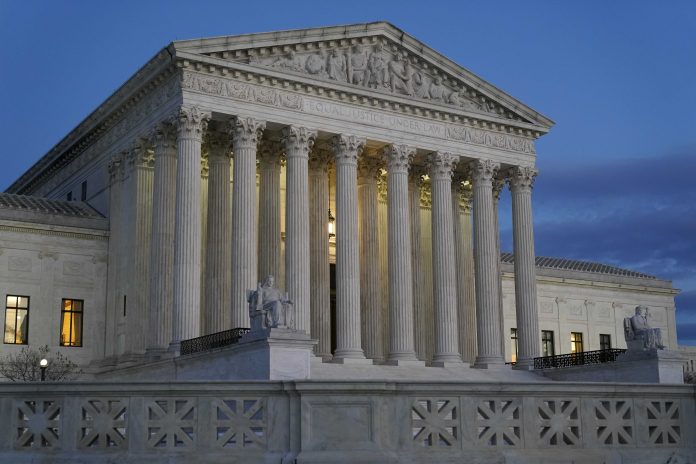
Associated Press
WASHINGTON (AP) — The Supreme Court says it will not hear arguments as planned March 1 in a case involving a Trump-era immigration policy used several millions of times over the past three years to quickly turn away migrants at the border.
The justices on Thursday removed from their calendar the case involving Title 42, which justified the quick expulsion of migrants on public health grounds. A court spokeswoman provided no explanation and the case has not been dismissed. The court’s action follows a legal filing from the Biden administration saying the case soon will be moot.
Government lawyers pointed to President Joe Biden’s recent announcement that the emergency declarations tied to the COVID-19 pandemic will end May 11. The administration said the end of the public health emergency will also mean the end of Title 42.
Republicans and even some Democrats in border states have opposed Biden’s efforts to end the Title 42 policy. They say the United States is not prepared for the expected influx of people who will come to the border with Mexico once the policy ends.
In December, the justices were deeply divided when they agreed to prevent the policy from ending pursuant to a judge’s order and they set the case for argument. Five justices agreed to do so while four justices — the court’s three liberals and conservative Neil Gorsuch — disagreed. The case itself involved the ability of states to intervene in a lawsuit over the policy.
The policy dates to March 2020 when — under pressure from the White House — the head of the Centers for Disease Control and Prevention issued an order limiting migration at the nation’s borders with Mexico and Canada, saying it was necessary to reduce the virus’ spread. The order said the facilities where migrants are held were not designed to quarantine people or allow for social distancing.
The authority for that order came from Title 42 of the Public Health Service Act, which gives federal health officials extraordinary powers during a pandemic to limit transmission of an infectious disease.
Officials have expelled asylum-seekers inside the United States 2.5 million times under Title 42.
















